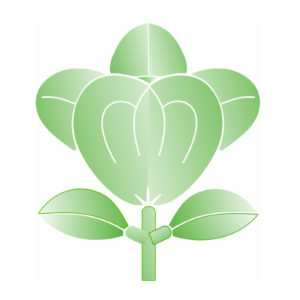Decrease of the life quality level for children in our country is wide known for the last ten years.
On the one hand it is the result of outer factors: ecological problem, radiation, increased use of tobacco and alcohol, household chemicals and medicine.
On the other hand it is ill women health and they are subject to be influenced. The result is the difficulties with mother and fetus that cause to birth rate failing and increased disease in children.
Modern therapy of children diseases is a complex therapy that considers possible joint effect in general and local mechanism of pathological process.
Faults in medical therapy, necessary long term (for years) correction of pathological process, medical disease while uncontrolled treatment of antifebriles and other preparations caused the increased interest to use the plant medicine.
Under WHO classification, the phytotherapy is one of the components of traditional medicine. It is the type of metabolic therapy effecting on the basis of metabolism and they consider this treatment meets the requirements of pathogenic therapy because it affects the process of tissue exchange.
This type of therapy has the advantages against other methods as follows:
- Plants safety and possible long term use
- Biological degree between plants active components and physiological active components of organism. Besides the herbal resources is combined with synthetic medical preparations
- Plants multisided effects and possible treatment of general and associated disease
- Simple and comfortable use
- Possible use of most medical plants to stimulate body defenses, immunity
- Medical plants are able to eliminate the toxins and byproducts on the basis of its diuretic action, increasing of antitoxic liver function, stabilization of cell membranes, etc.
- Herbs are antivirus, antibacterial, resolvent and immune regulator and promote air tube drain, etc.
- Plants are wide spectrum effective and soft against synthetic medical agents; it is simple to treat children.
In most cases only phytoherapy can affect positively and help avoiding difficult situations while use of chemical and therapeutic agents.
Sometime children who are appointed to be treated with use of phytotherapy were under long term treatment without results. There is an opinion that medical treatment of allergic disease is contraindicated. But you should remember that there is a group of medical herbs and agents that affect anti allergic and immune stimulated action.
Herbal treatment is the integral part of therapy in gastroenterology. The advantage of medical plants in therapy of digestive tract diseases in children is a complex spectrum of biologically active components. Medial plants make appetite normal, promote content characteristic of vitamins, microelements, mineral saults, membranes permeability, secretion process, absorption. It promotes rehabilitation of intestinal normal flora and prevent dysbacteriosis, positively affects nervous and endocrine system, promotes the trophism of gastrointestinal tract of mucous, motivates all physically corrected digestive process.
Even after serious surgical, infection, oncological diseases and blood diseases the phytotherapy medicine can decrease the side effects frequency caused by using chemical preparations and increase the therapeutic result.
Summarizing long term family experience and modern development data in phytopharmacy and phytopharmacology we actively use medical plants in pediatry following the rules.
- Medical plants are prescribed individually under therapeutic action.
- When prescribed phytotherapy we consider both the general and associated disease.
- Tea is composed on the basis of therapeutic reason with disease (pathogenesis) in every single child.
- Medical plants treatment requires long use and treatment period.
- While chronic disease you need prophylactic therapy courses in high periods.
- We do not use dangerous medicine in treatment to children.
- Phytotherapy treatment requires knowledge of therapeutic effect of every medical plant and its combination in multicompound tea.
- All used medical plants are prepared and cultivated under our control, they are tested to investigate the absence of teratogenic, cancerogenic, toxic, allergic effect and side effects.
Phytotherapy course lasts more than 1 month. Combinational medical and herbal tea reacts slowly. As a rule, patient observes improvement in recovery after 2-3 weeks, and the full effect can be observed after 3-4 months. The long term treatment is required for steady results.
We consider the use of phytotherapy in pediatry and notice that there are different reasons to use it: treatment and prophylactic of chronic diseases, heart diseases, respiratory and digestion diseases, liver, bile duct, kidneys, urinoexcretory system, skin, etc.
Method of rehabilitation therapy with use of herbs after diseases gives good results. Usually the recovery becomes evident after several days, but if you have chronical disease you get result after long term and regular treatment.
